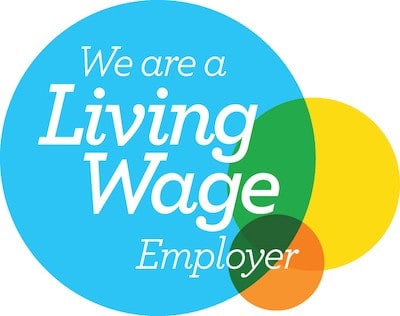In 1972 when Paul Regan arrived at the Renewal Programme, migration was a key issue in Newham. Those born and raised in the borough were moving to Essex as the Royal Docks were closing and moving out to Tilbury, meaning there was rising unemployment down at the docks and warehouses.
At the same time, Ugandan Asians and Vietnamese boat people arrived in Newham as refugees; a migration wave was coming into the community and there was a rise in tension between cultures due to language barriers.
Clifford Hill and Rowland Joiner, the founders of the Renewal Programme, came together to respond to this. Their answer was to bring all of the churches in the borough as one. With enough ‘manpower’, they could tackle the issues the community was facing. Thus, the organisation was born.
Paul was a Minister of a local church, with a full-time job, but couldn’t help becoming more curious in the Renewal Programme as it grew.
One of the first projects he was involved in was trying to tackle drug culture amongst youths, which was sweeping the nation. Using the hall belonging to Pilgrims Way Church, Paul set about hosting ‘gigs’ for youth clubs on Sunday nights with performances from Christian rock bands. The genre was increasing in popularity and Paul had groups travelling from across the country to perform for the kids. This initiative gave children who wouldn’t normally come to church a better outlook on life.
Paul also played an instrumental part in tackling the challenges people were facing from English not being their first language, helping to organise English classes for women in the Asian community in the mid-70s; what started out as members of the church visiting individual houses grew into an external event held in the Church hall, encouraging social networking and community building.
In 1977/78, Paul took over the Renewal Programme as Director. Around this time, the police were causing trouble for Black pastors, so Paul and Clifford Hill organised a press conference, which Scotland Yard attended, where the pastors told their stories, opening up a dialogue that allowed the Renewal Programme to address the situation directly with the police.
Paul appointed a man named Herbie Boudier who intervened between the police and children wanting to play cricket in West Ham Park (as the children were not aware of how to book the pitches), creating a ‘Challenge Cup’ between the two groups. This competition went on for several years, with the police even inviting the children back to Chigwell Cricket Club, restoring good relations between the two community groups.
Homelessness was also on the rise in the borough, so Paul began work with Newham Probation Service, Barnardo’s and Newham Social Services to set up a hostel. They turned a disused vicarage in Canning Town, with enough room for ten children, into a small hostel. Due to this being a short-term let, Paul knew he needed to establish it properly in order to continue providing support. He set up the Renewal Programme Housing Association in the mid-80s, eventually partnering with two established Housing Associations, London Quadrant and East Thames – for support. Thus, the Renewal Programme’s Supported Housing Project was born, running alongside the Refugee and Migrant Support Project and the Education Project.
At the same time, the Renewal Programme decided to set up children’s clubs for ‘latchkey kids’ (children whose parents worked long hours), as it wasn’t safe for them to wander around the streets waiting for their parents to come home. Paul approached various churches within Newham, asking them to provide the space for children to play games, socialise and to get refreshments whilst they wait for their parents to finish work. This was the beginning of the Youth Project.
Paul stepped down as CEO of the Renewal Programme in 1995 but the foundations built by him and his team remain in place today. The projects he set up are still going strong with the intentions behind them still aiming to “transform and empower individuals for a stronger community across Newham”.







